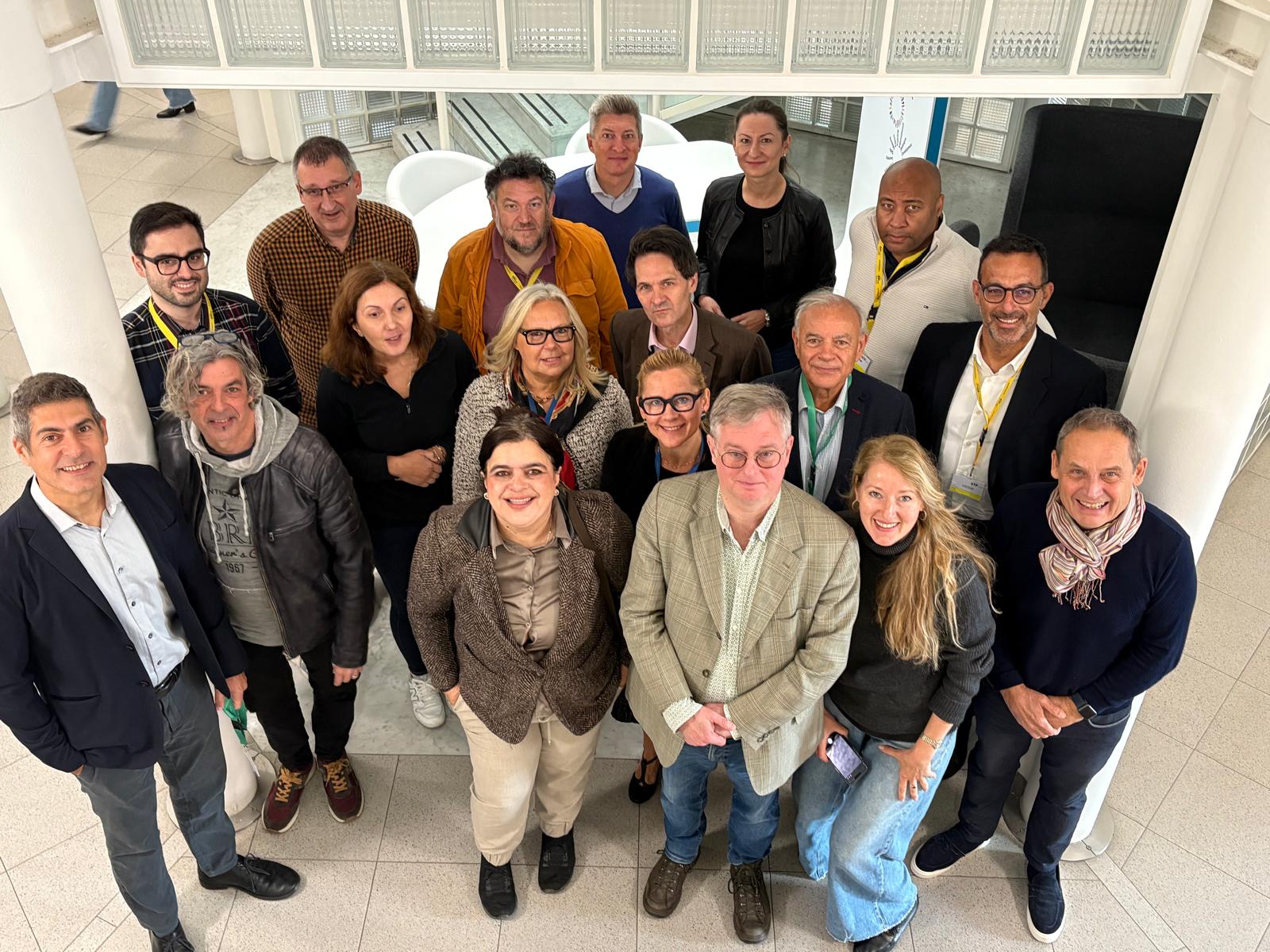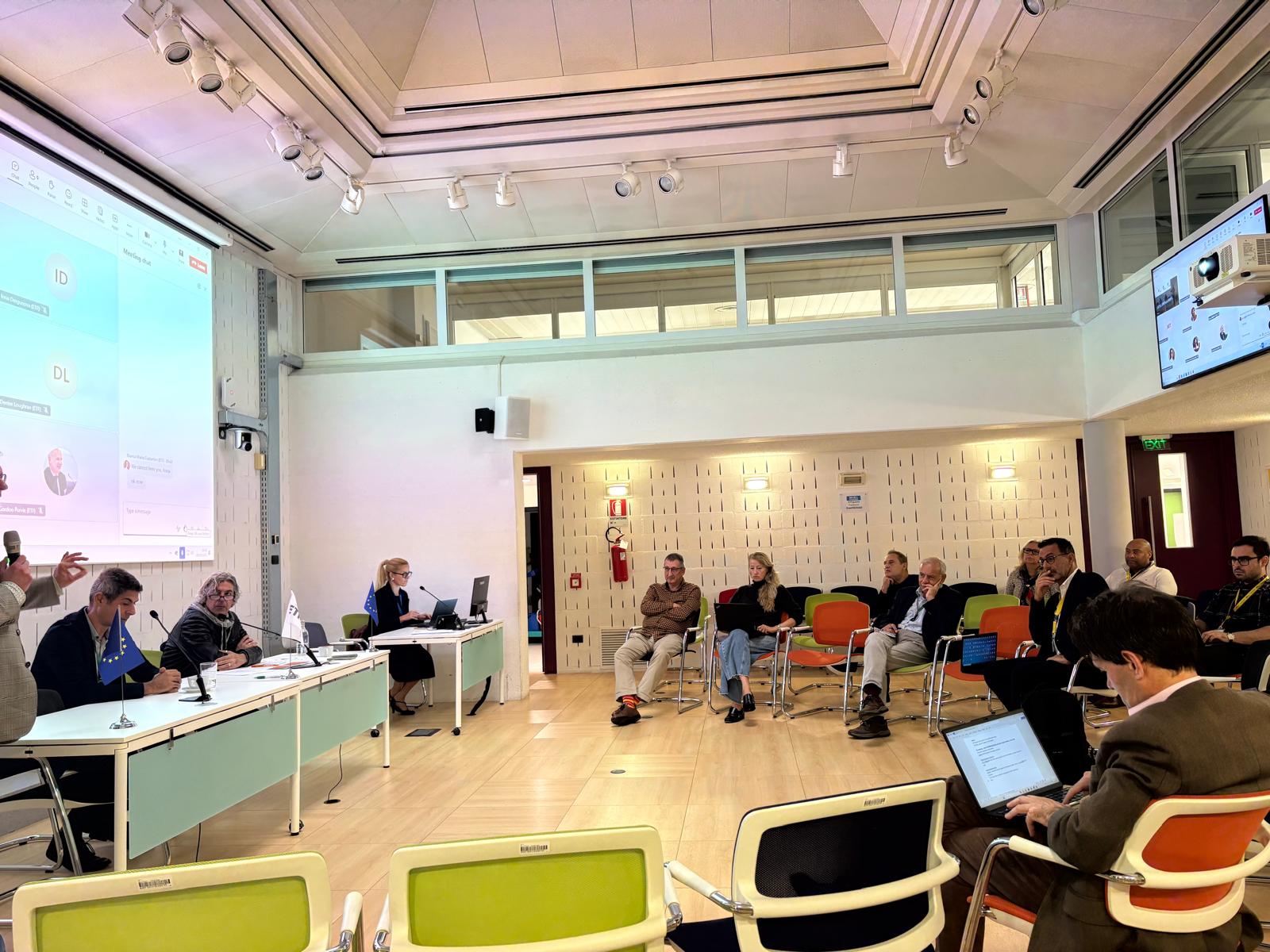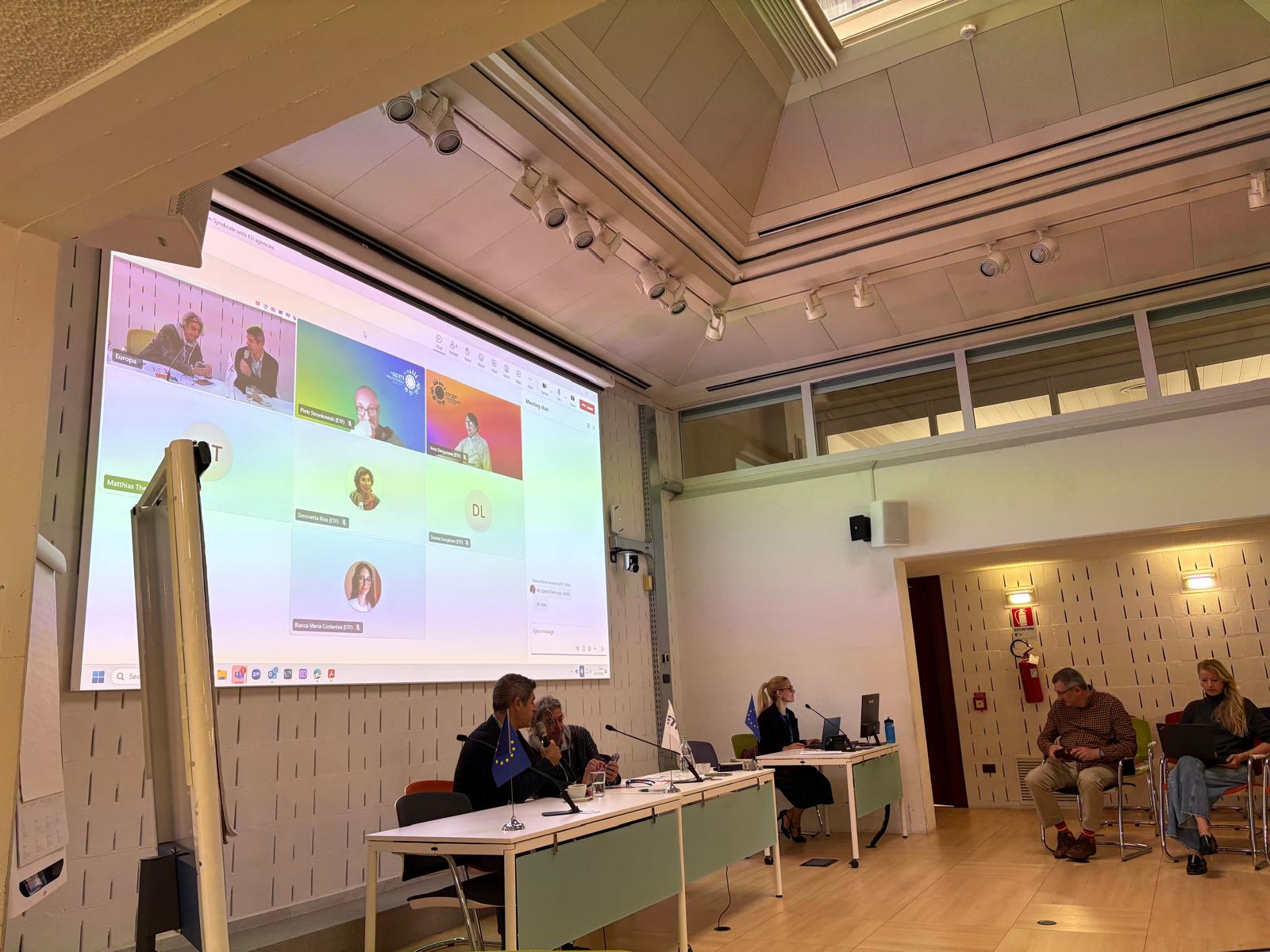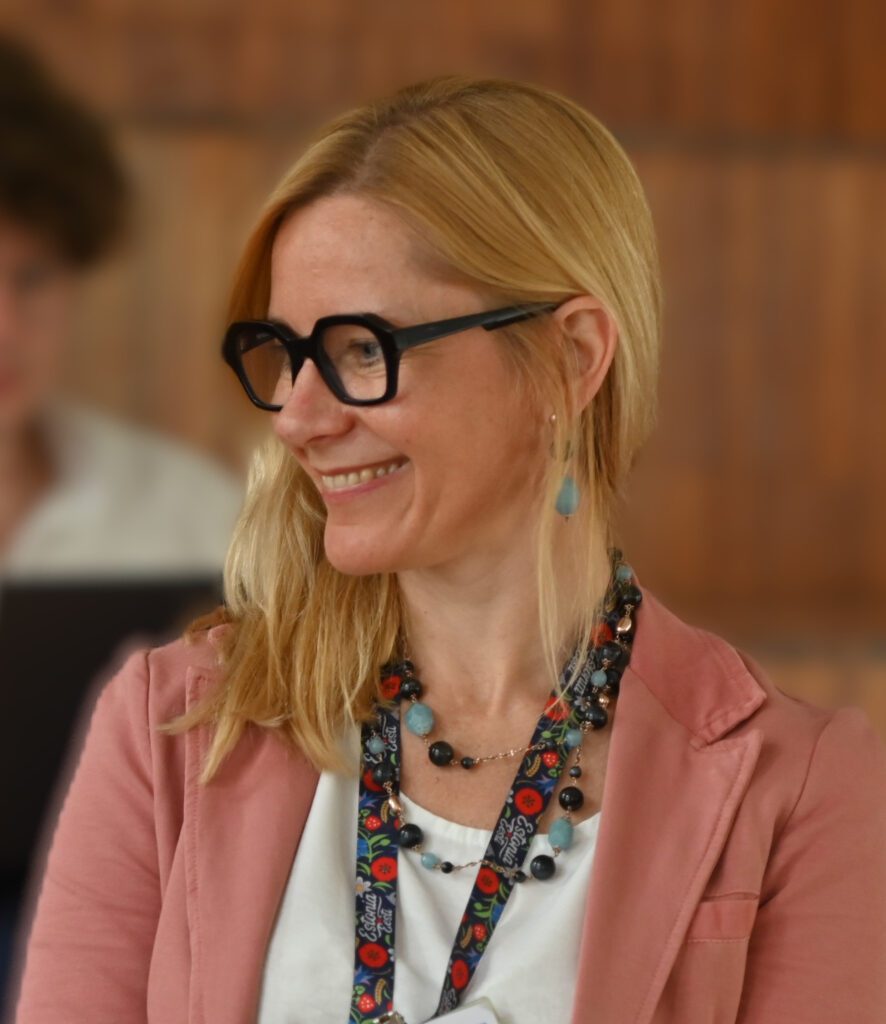A long-awaited meeting: EU agencies’ unions reunite in Torino. First-ever in-person meeting of EU agencies’ Union Syndicale Fédérale marks a milestone for Staff Representation.
First-ever in-person meeting of EU agencies’ Union Syndicale Fédérale marks a milestone for Staff Representation

Torino, 3 October 2025 — In a gathering at the European Training Foundation (ETF), representatives from multiple EU agencies met in person for the first time since the creation of the Agencies’ Working group within Union Syndicale Fédérale in 2019. Held in the Sala Europa at the ETF headquarters, the meeting marked a significant step forward in inter-agency cooperation, mutual learning, and advocacy for improved working conditions across the EU institutions.
The meeting brought together representatives from the European Union External Action (EEAS), Eurojust, The European Union Agency for Asylum (EUAA), the European Research Council Executive Agency (ERCEA), the European Union Aviation Safety Agency (EASA), Frontex, Eurofound, Fusio For Energy (F4E), and ETF’s own staff union. It opened with welcoming remarks from Jakov Minic, Vice-President of Union Syndicale Federale (USF), and José Manuel Galvin Arribas, President of ETF US, who both underlined the importance of physical presence in building solidarity and shared understanding — something that had been missing since the group’s foundation due to the pandemic and other logistical constraints.
At the heart of the day’s discussions was the persistent challenge of career development within agencies, particularly the limited opportunities for Contract Agents (CAs) to progress into Temporary Agent (TA) roles. Attendees voiced concern about the lack of fairness in internal recruitment, where staff on different contracts often perform identical roles but face unequal treatment. While the Staff Regulations currently set limits on mobility between categories, the group explored ways agencies might work within existing frameworks to facilitate more equitable career paths — potentially through updates to the General Implementing Provisions (GIPs). However, participants also acknowledged that such revisions would be a complex and time-consuming process, requiring alignment across institutions.

Alongside contract and career issues, pension rights emerged as a major topic. Niels Bracke, President of Union Syndicale Bruxelles, as well as Vice-Presidents of USF advised staff to make better use of pension calculation tools, while a dedicated seminar was proposed to address growing uncertainty surrounding pension transfers and entitlements — particularly for CAs in the lower Function Groups. Legal action in such matters, it was noted, would only be viable after the final pension estimates are received, and the pension is already effective.
Another key concern resonating across agencies was staff wellbeing. Data from internal surveys suggest that organisational culture, staff fear, and turnover remain unresolved issues in many workplaces. Delegates called for concrete action plans to follow up on survey results, as well as the creation of a confidential, inter-agency pool of counsellors to provide safe spaces for employees experiencing harassment or other professional distress. Union leaders also warned that the “niceness” often displayed in formal settings should not obscure or minimise the serious nature of findings highlighted by staff themselves.
Discussions also touched on diversity and inclusion, where it became clear that while policies exist, implementation remains inconsistent. The Unions reaffirmed their commitment to pushing for genuine change — not just in official statements, but in lived workplace experiences. Harassment prevention, fair representation, and stronger communication between staff and management were seen as essential components of a more inclusive organisational culture.
José Manuel Galvin Arribas described the event as a milestone in cross-agency union cooperation. He emphasised that the meeting helped consolidate a common agenda, highlighting issues such as staff wellbeing, career mobility, pension rights, and the need to strengthen the role of unions in the broader EU administrative framework. “It was also a unique learning opportunity among unionist peers,” he said, noting that the Agencies group has become a key platform for systematically addressing shared concerns.
USF President, Nicolas Mavraganis echoed this sentiment, reminding us that while agencies have become central to the functioning of the EU, their staff too often face precarious contracts and limited prospects. “The staff are the only resource of our institutions,” he said. “This meeting is one more step towards ensuring they are heard and respected.”

The visit also included a separate meeting on 2 October between Niels, President of Union Syndicale Bruxelles as well as a senior USF representative, and Thierry Foubert, an ETF’s senior management. In a constructive exchange with Mr. Foubert, contractual issues were discussed in depth, followed by a wider all-staff meeting where ETF employees raised questions on internal competitions, pension transfer rules, and visa complications for missions. Niels also met with individual staff members, reinforcing the importance of direct, personal dialogue in understanding workplace realities.
Reflecting on the event, Niels lauded the quality of the exchanges but noted that the meeting’s duration was too short to fully address the range of topics on the table. “We need to invest more time in sharing the expertise USF has built up over the years. Out of sight is out of mind, especially when it comes to complex topics like Staff Regulations and pension rights. In future, such meetings should last at least two full days.”
The meeting concluded with a strong message: social dialogue must be reinforced at all levels. Despite ongoing efforts, neither the current nor the previous European Commission has engaged directly with Union representatives — a gap that, according to attendees, must be addressed if real progress is to be made.
As the Agencies’ Union Syndicale group continues to grow in scope and ambition, this first in-person meeting stands as a turning point. More than just a routine gathering, it was a reaffirmation of collective purpose — and a reminder that the voice of agency staff is both vital and long overdue in EU decision-making.

Liia KAARLOP
ABOUT THE AUTHOR
Liia Kaarlop is working at the European Training Foundation (ETF) as Project Officer. She is a member of Union Syndicale (US-ETF).

Aleksandra FALCONE
ABOUT THE AUTHOR
Aleksandra Falcone is working at the European Training Foundation (ETF) as Planning, Monitoring and Reporting officer. She is a member of USF Federal Committee from Union Syndicale-ETF.